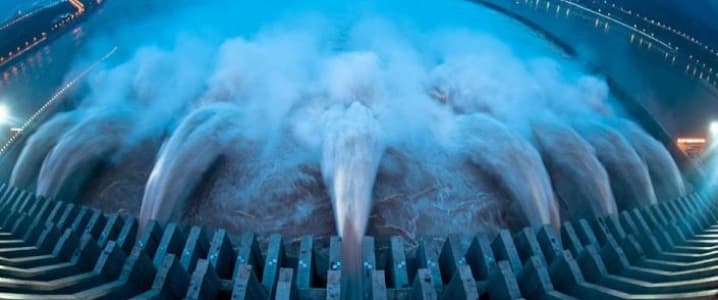Kyrgyzstan has signed a deal with a Czech company specializing in renewable energy to take over a hydropower project that the government sees as key to ambitious plans to export electricity to Afghanistan and Pakistan.
President Almazbek Atambayev’s office said in a statement on July 10 that the Kyrgyz government has reached an agreement with Železný Brod-based Liglass Trading to construct and operate Akbulun HPP and Naryn HPP-1 in the Upper Naryn cascade. The company would under the same arrangement be responsible for implementing the “Construction of Small Hydropower Stations in Kyrgyzstan” project, a string of 10 smaller electricity-generating units.
Atambayev hailed the deal as a “signal for potential investors from all over the world that confirms Kyrgyzstan's readiness to create all necessary conditions for doing business.”
It may be early days for such exuberant language, however.
So far, Liglass Trading has committed only to spending $37 million on buying the previous Russian investors, RusHydro, out of its 50 percent stake in the operating company — ZAO Verkhne-Narynskie GES. The statement announcing the news stated that technical and financial aspects of the hydropower project will be completed according to schedule, although it is not immediately clear what the schedule actually entails. Under a 2012 deal between RusHydro and the Kyrgyz government, part of the Upper Naryn cascade was to start functioning by 2016. The entire project was to take six years to complete.
The dollar figure to be paid by Liglass Trading is equivalent to the amount that RusHydro claims to have spent on work before abruptly pulling out in 2015 because of financial complications. Related: Saudi Reshuffle Could Completely Shake Up Oil Markets
According to its website, Liglass Trading has noteworthy experience operating in the former Soviet Union — in Armenia and Russia, specifically — on projects of roughly commensurate scale.
The entire cascade as first proposed is intended to be composed of four hydropower units — Akbulun HPP and Naryn HPP-1, mentioned in the presidential administration’s July 10 statement, and Naryn HPP-2 and Naryn HPP-3, which are not. As stated by RusHrydo, the 237-megawatt cascade was designed to produce 942 million kilowatt hours annually. These figures have proven highly variable, however, as is the likely entire projected cost, which ranges from $400 million to more than $700 million.
With the Czech company in place, attention will now turn to sourcing the funds. The long-term nature of the investment makes it most probable one of the usual suspects among the international financial institutions would be the mostly likely to step in. But any highly patient and cool-headed private investor could, in theory, see considerable returns if all were to go to plan.
Last month, while still at the stage of expressing interest, Liglass Trading reportedly stated that it would draw $230 million in investments to build Akbulun HPP and Naryn HPP-1, and that only once that section was completed, it would reach a separate deal on Naryn HPP-2 and Naryn HPP-3.
Atambayev let slip that the Liglass Trading deal was coming during a visit to Russia at the end of June, an occasion he used to gently rebuke his partners in Moscow for the missed opportunity. Atambayev said he brought up the issue of hydropower plants with his Russian counterpart Vladimir Putin.
“This is the conversation we had: I told Vladimir Vladimirovich that this was a big mistake on Russia’s part. It was a big mistake of the managers of the companies involved. And one day you will understand this and punish them,” Atambayev told reporters, recalling his exchange.
As the Upper Naryn component moves forward, attention will turn to the considerably larger and more ambitious Kambarata-1 hydropower plant. That plant would, if ever completed, generate four times more electricity than the entire Upper Naryn cascade. But with costs there estimated at well over $2 billion at a highly conservative estimate, finding interested parties could prove a harder undertaking.
Speaking in Moscow, Atambayev even suggested Kazakhstan and Uzbekistan could be persuaded to get involved.
ADVERTISEMENT
Such optimism would have been deemed borderline deranged as recently as one year ago, but the death of Uzbek President Islam Karimov, an ardent opponent of his neighbor’s hydropower dreams, has shaken up the scene. So much so that Uzbek Foreign Minister Abdulaziz Komilov even stated last week that Tashkent was not, in principle, opposed to Tajikistan’s own projected mega-dam.
By Eurasianet
More Top Reads From Oilprice.com:
- The Global Oil Demand Driver That Is Being Ignored
- Has U.S. Shale Wrecked Its Own Recovery?
- Markets Overcome The Crash: Oil Rally Continues

















